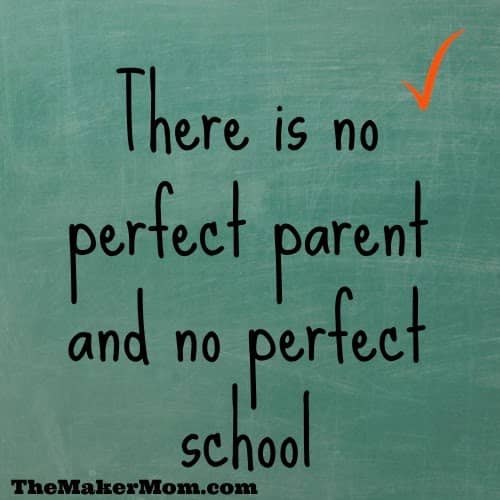Here’s what happens when someone asks me to share advice about her gifted kindergartner, a child who is not quite fitting in with his classmates. I can’t just share great tips, even though that would be a lot more friendly to search traffic. Here is some advice for parents who want their gifted kindergartener to succeed.
Every choice you make for your child is also a choice for your family.
If your local school isn’t meeting your child’s needs, the remaining choices are to start homeschooling, move to a new school district, or send the kid(s) to a private school, which can impact your family’s lifestyle and income. This doesn’t mean there’s a right or wrong way to go, it just means that you need to think through the pros and cons beyond the child or children in question. You can also find an online school that’s specifically for gifted students.

There is no edutopia
Your child might have a great year followed by a lean year. Your child doesn’t need the best education, but in the words of Dr. Wendy Mogel, your child does need one that is Good Enough.
So back to that reader question- she lives in a rural area in Illinois, my home state. A state that is broke. She was wondering if she could get an IEP, an individual education plan, for her gifted child, a kindergarten student who is capable of doing work several grades ahead of his classmates.
No, she can’t. Or maybe she can at the discretion of the school leadership team, but there’s no legal mandate for it. In Illinois, there are no protections or laws that require the school to meet the unique needs of gifted students. This is especially troublesome in the case of highly or profoundly gifted students because they tend not to thrive in a typical classroom environment. If the school fails to meet her son’s educational needs, well, so what? She has no legal recourse. She cannot sue the school to provide such an education or to pay for a private school that can. Her lawsuit would have no legal standing.
Does your state offer GIEPs (gifted IEPs)?
This list provides a wonderful guide to state-by-state gifted policies.
The first day of kindergarten with a gifted child
Teachers don’t really care if a mom or dad thinks her kid is smart. What they pay attention to, ah, might pay attention to, is data. So it might be worthwhile to pursue testing with an educational psychologist. I’m not sure of the going rates these days, but I’m figuring something in the area of at least $700 -$1,000 for a full intake, a day of testing, including IQ and achievement tests, and a detailed report that includes educational recommendations in addition to test scores.
Wait a minute, doesn’t the school district already have a school psychologist on staff?
Probably. But if there’s a long list of students in need of assessment, the one who already reads and does math will probably come last in line. That is, if the school will even agree to provide the testing.
Should you give a five-year-old an IQ test?
In general, I’m not a fan of doing IQ tests. But if you need data to present to teachers and school administrators, that’s the way to go.
How do I get my gifted child the education he deserves?
Well, how do you feel about homeschooling? Or moving?
As nuts as people get over socialization concerns related to homeschooling, they don’t understand that kids who are in a different intellectual zone from their peers tend not to socialize really well with their age-mates.
I’ve known adults who experienced “radical acceleration” as children. That is, they skipped up two or more grades. Several say they struggled socially and would not recommend that choice.
One effective way might be to sign them up for a STEM camp or enroll them in a coding class. It’s a great way for them to continue their learning when outside of school and help them meet friends with similar interests and abilities.
Can your public school meet the needs of your gifted child?
I don’t mean to suggest that a parent shouldn’t attempt to work with their local schools and current teachers and administrators. I’m just saying that in my experience (and all too many parents of highly gifted kids), the school is unlikely to do much.
But before you take any kind of leap, you need to check in with your child. Is he happy going to school? Does he have friends?
It’s easy enough to “afterschool” or provide at-home enrichment for kids in the early grades if they are happy at school. Otherwise, if they aren’t, you may need to consider alternatives where your child can thrive academically and emotionally.
There are organizations like the Davidson Young Scholars that offer support to qualifying children and their families. Honestly, the biggest thing that group did for me was to affirm that I wasn’t simply being that mom with an over-inflated sense of her child and outrageous demands. The DYS advisors are happy to educate teachers and administrators.
What else can parents of gifted kids do?
Speak up. Advocate for gifted kids outside of your child’s classroom. Speak with school administrators and the school board. Call your legislators to advocate for mandates and funding for gifted education and training for teachers.
School systems are bureaucracies and may take years to change. The harsh reality is that change may not happen in time for your child, but you’ll be helping families that come after you.
Speak up for gifted kids and gifted education at state budget hearings. You will feel like it’s a waste of time. But it’s important that decision-makers at the state level hear from parents of gifted students. Otherwise, it’s easy to ignore or deny that there’s a problem.
